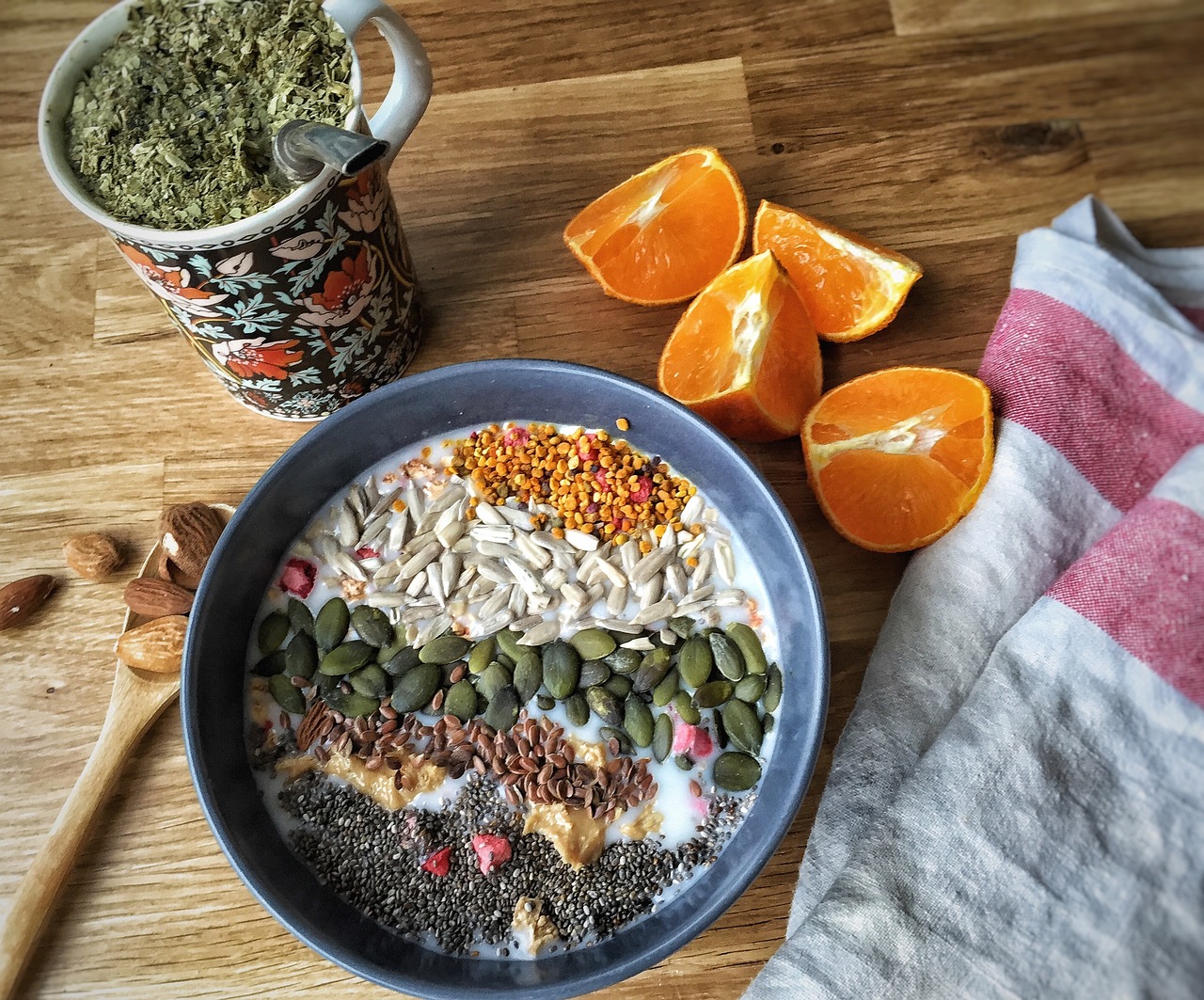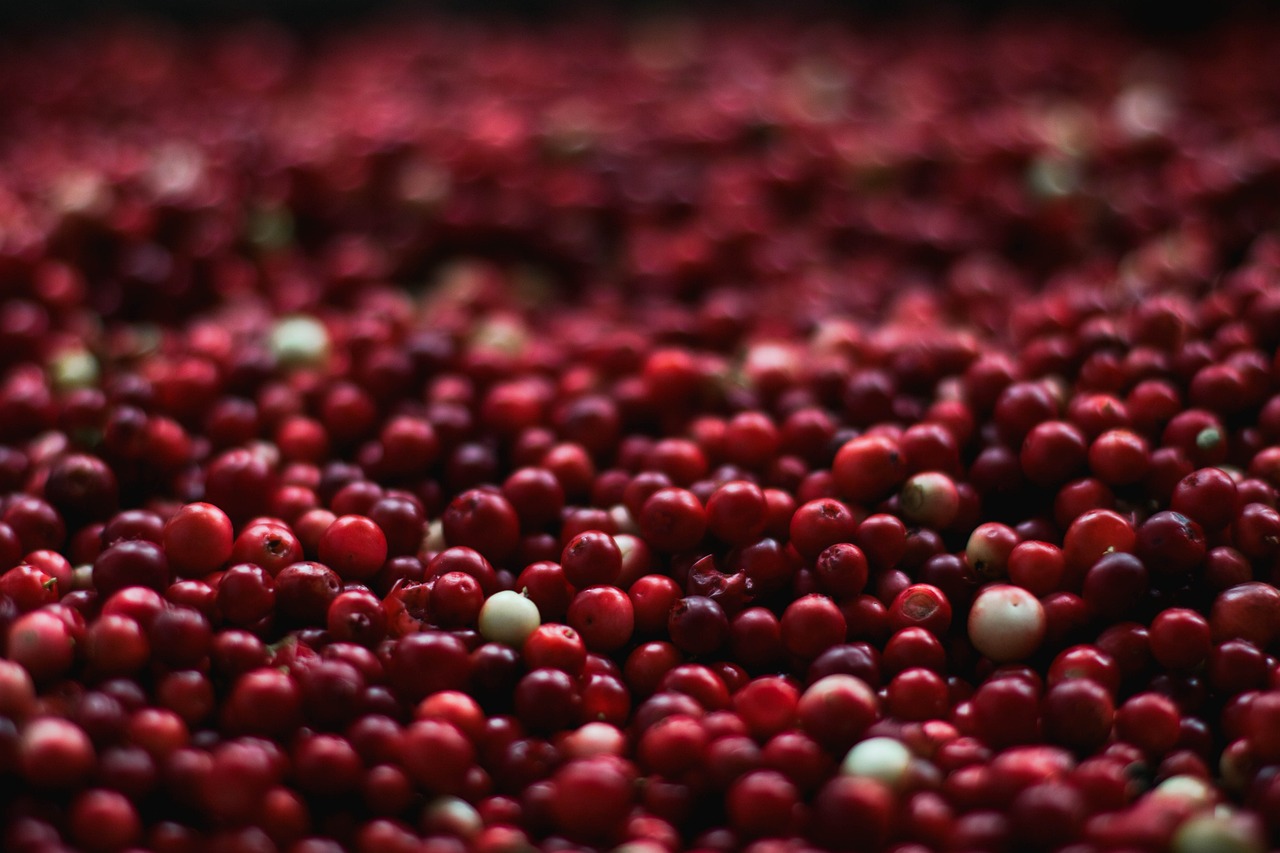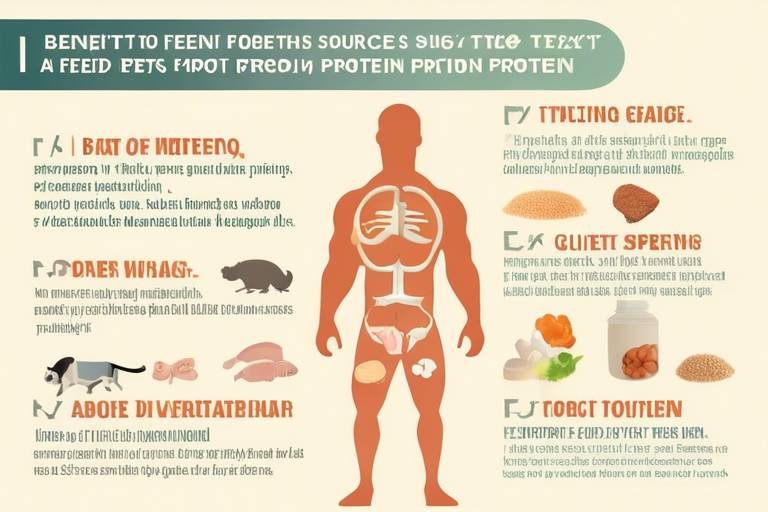The Benefits of Feeding Pets Different Protein Sources
Have you ever noticed how a little variety in our meals can brighten our day? Well, the same goes for our furry friends! Feeding pets different protein sources isn't just a culinary adventure; it’s a pathway to better health and happiness. Just like humans, pets thrive on a diverse diet that keeps them engaged and nourished. Imagine serving your pet the same dish every day—how dull would that be? By incorporating a mix of proteins into their meals, you’re not only tantalizing their taste buds but also enhancing their overall well-being.
So, what’s the big deal about protein variety? Different protein sources come packed with unique nutrients that can significantly impact your pet’s health. For instance, while chicken is a fantastic source of lean protein, fish offers those essential omega-3 fatty acids that promote a shiny coat and healthy skin. It’s like giving your pet a buffet of nutrients that cater to their specific needs. Plus, a varied diet can help prevent food allergies and sensitivities, making mealtime less of a guessing game.
Incorporating multiple protein sources also ensures that your pet receives a broader spectrum of vitamins and minerals. Think of it as a nutritional safety net—if one protein source lacks a certain nutrient, another may provide it. This approach not only supports their energy levels but also bolsters their immune system, making them less prone to illness. By feeding your pet a diverse range of proteins, you’re investing in a longer, healthier life for them.
Now, you might be wondering how to make this happen. It’s simpler than you think! Start by mixing different types of proteins into their diet. You can alternate between animal-based proteins like beef and chicken with plant-based options like lentils or peas. This not only keeps their meals interesting but also ensures that they get a well-rounded diet. Just remember, change doesn’t have to happen overnight; gradual transitions can help your pet adjust without any tummy troubles.
To wrap it all up, feeding pets a variety of protein sources is a delightful way to enhance their health and happiness. It’s not just about what’s on their plate; it’s about creating a balanced, nutritious diet that supports their active lifestyles. So, go ahead and explore the world of pet nutrition—your furry companion will thank you for the tasty adventure!
- Why is variety in protein sources important for pets? A varied diet ensures that pets receive a wide range of nutrients, which supports their overall health and can prevent food allergies.
- Can I mix plant-based proteins with animal-based proteins? Absolutely! Mixing different protein sources can provide a more balanced diet for your pet.
- How do I know if my pet is getting enough protein? Consult with your veterinarian for personalized dietary recommendations based on your pet's specific needs.

Understanding Protein Needs
When it comes to our furry friends, understanding their protein needs is crucial for ensuring they lead happy and healthy lives. Just like humans, pets have unique dietary requirements that vary based on several factors, including their species, age, and activity level. For instance, a playful puppy will have different protein needs than a senior dog lounging on the couch. This is because protein plays a vital role in supporting growth, repair, and overall vitality.
Protein is a building block for muscles, organs, and tissues, which means that not getting enough can lead to a host of health issues. To illustrate, let’s break it down a bit:
| Factor | Influence on Protein Needs |
|---|---|
| Species | Dogs and cats have different protein requirements. For example, cats are obligate carnivores, meaning they need more protein from animal sources. |
| Age | Growing puppies and kittens need more protein for development, while older pets may require less to maintain their health. |
| Activity Level | Active pets, such as working dogs, require higher protein intake compared to those that are sedentary. |
By understanding these factors, pet owners can tailor their pets' diets to meet their specific needs. For example, a high-energy dog that loves to run and play will benefit from a protein-rich diet to fuel their activities. On the other hand, a senior cat may need a diet that is lower in protein but still rich in essential nutrients to support their aging body.
Additionally, it’s vital to consider the quality of the protein sources. Not all proteins are created equal! Animal-based proteins tend to be more digestible and provide essential amino acids that are crucial for your pet's health. On the flip side, some plant-based proteins can be beneficial but may not offer the same level of digestibility. Therefore, a balanced diet that includes a mix of different protein sources can help ensure pets receive a comprehensive range of nutrients.
Ultimately, understanding your pet's protein needs is about striking the right balance. It's like creating a symphony where each instrument plays its part to produce a harmonious melody. By incorporating a variety of protein sources, you can help your pet thrive and enjoy life to the fullest.

Types of Protein Sources
When it comes to feeding our furry friends, understanding the available is crucial for their health and happiness. Just like humans, pets thrive on a diverse diet, and incorporating a range of protein sources can significantly enhance their overall well-being. Each type of protein brings its own unique set of benefits, so let’s dive into the different categories!
First off, we have animal-based proteins, which are often the stars of the show. These proteins come from sources like chicken, beef, and fish. They are packed with essential amino acids that are vital for your pet's growth and energy. Animal proteins are generally more digestible, making them a fantastic choice for pets of all ages. You might be wondering why this matters—well, just think of it this way: if your pet is able to digest their food better, they can absorb more nutrients, leading to a healthier and happier life!
Animal-based proteins are not only tasty but also rich in nutrients. For example, fish is a powerhouse of omega-3 fatty acids, which are known for their anti-inflammatory properties and ability to promote a shiny coat. Chicken and beef, on the other hand, are excellent for muscle growth and repair, making them popular choices in many commercial pet foods. The table below summarizes some of the key animal protein sources:
| Protein Source | Benefits |
|---|---|
| Chicken | High in protein, promotes muscle growth |
| Beef | Rich in iron and zinc, supports energy levels |
| Fish | High in omega-3 fatty acids, supports skin and coat health |
Next up, we have plant-based proteins. While they may not be the primary protein source for many pets, they can definitely play a supporting role. Ingredients like lentils, peas, and quinoa provide a fantastic source of fiber and other essential nutrients. These plant proteins are particularly beneficial for pets that may need to manage their weight, as they tend to be lower in fat. Plus, they can add some exciting variety to your pet's meals!
Incorporating plant-based proteins into your pet's diet can also promote better digestion. The fiber found in these sources aids in maintaining a healthy gut, which is essential for overall health. However, it’s important to note that while plant proteins can be beneficial, they should complement animal proteins rather than replace them entirely. This balance ensures that your pet is getting a comprehensive nutrient profile.
In summary, whether you’re opting for animal-based or plant-based proteins, the key takeaway is to aim for variety. A mixed diet not only keeps mealtime interesting for your pet but also ensures they receive the broad spectrum of nutrients necessary for a vibrant and healthy life. So, next time you're shopping for pet food, consider the different protein sources and how they can benefit your furry companion!
Animal-Based Proteins
When it comes to our furry friends, are often the gold standard in pet nutrition. These proteins, derived from sources like chicken, beef, and fish, are not just delicious; they are also packed with essential amino acids that are crucial for your pet's health. Think of animal-based proteins as the building blocks of your pet's body, helping to develop strong muscles, repair tissues, and support overall growth. Just like we need a balanced diet to thrive, our pets do too, and animal proteins play a significant role in that balance.
One of the key advantages of animal-based proteins is their high digestibility. Pets are more likely to absorb the nutrients from these proteins efficiently, which means less waste and more energy for playtime! For instance, chicken is not only a popular choice but also a lean protein that is easy on your pet's stomach. On the other hand, beef provides a hearty option that is rich in iron and zinc, supporting your pet's immune system and energy levels.
Additionally, fish protein has become increasingly popular in pet diets. It's not just a tasty treat; it comes with a treasure trove of health benefits. For example, fish is loaded with omega-3 fatty acids, which are known to support skin health, reduce inflammation, and promote a shiny coat. Imagine your pet strutting around with a coat that gleams in the sunlight—it's not just a dream, it can be a reality with the right protein sources!
To give you a clearer idea of the benefits of different animal-based proteins, here’s a quick comparison table:
| Protein Source | Key Benefits | Digestibility |
|---|---|---|
| Chicken | Lean protein, easy on the stomach | High |
| Beef | Rich in iron and zinc, supports energy | Moderate |
| Fish | High in omega-3s, promotes healthy skin and coat | High |
Incorporating these animal-based proteins into your pet's diet not only satisfies their taste buds but also ensures they receive the necessary nutrients to thrive. It’s like giving them a superfood boost every day! However, keep in mind that variety is key. Just like we don’t eat the same meal every day, our pets deserve a diverse diet too. Mixing protein sources can help prevent dietary boredom and keep them excited about mealtime.
Ultimately, choosing animal-based proteins is a fantastic way to support your pet's health. By giving them a mix of chicken, beef, and fish, you’re not only providing them with essential nutrients but also enhancing their overall quality of life. So, the next time you’re at the pet store or preparing their meals at home, think about how you can incorporate a variety of these protein sources into their diet. Your pet will thank you with wagging tails and happy purrs!
Benefits of Fish Protein
When it comes to providing our furry friends with a diet that supports their health, fish protein stands out as a powerhouse of nutrition. Not only is it a fantastic source of protein, but it also packs a punch with its unique benefits that can elevate your pet's overall well-being. One of the most significant advantages of fish protein is its high content of omega-3 fatty acids. These essential fats are crucial for maintaining a healthy coat and skin, reducing inflammation, and supporting cognitive function.
Think of omega-3s as the magic elixir that keeps your pet looking vibrant and feeling energetic. Just like how we feel better after a nutritious meal, pets thrive when their diet includes these beneficial fats. Furthermore, fish protein is often more easily digestible than other protein sources, making it an excellent option for pets with sensitive stomachs. Imagine a delicate fish fillet compared to a heavy steak; the fish is lighter and easier to handle, just like how your pet's digestive system prefers it.
In addition to promoting a shiny coat and healthy skin, fish protein can also play a role in enhancing your pet's immune system. The nutrients found in fish, such as vitamin D and selenium, work together to strengthen your pet's defenses against common illnesses. By incorporating fish into your pet's diet, you're not just feeding them; you're investing in their long-term health.
Moreover, fish protein can help combat allergies and sensitivities. Many pets struggle with food allergies, and introducing a novel protein source like fish can reduce the risk of allergic reactions. This is especially important for pets that have been on the same diet for an extended period. Variety is key, and fish can be a game-changer in preventing food-related issues.
So, how can you include fish protein in your pet's diet? You might consider the following options:
- Canned fish (like tuna or salmon) - just make sure it's packed in water and free from added salt.
- Fish oil supplements - these can provide concentrated doses of omega-3s.
- Commercial pet foods that list fish as a primary ingredient.
In summary, incorporating fish protein into your pet's diet offers a multitude of benefits, from promoting skin health to enhancing immune function. It's a simple change that can lead to significant improvements in your pet's quality of life. So, the next time you're planning their meals, consider adding a splash of fish to the mix!
Chicken and Beef as Primary Proteins
When it comes to choosing the right protein sources for your furry friends, chicken and beef stand out as two of the most popular options. These meats are not just favorites among pet owners; they are also packed with essential nutrients that are vital for your pet's health. Both chicken and beef are excellent sources of high-quality protein, which is crucial for muscle growth, maintenance, and overall vitality in pets. But what exactly makes these meats so beneficial?
First and foremost, chicken is often praised for its lean protein content. It is lower in fat compared to beef, making it a great option for pets that need to maintain a healthy weight. Additionally, chicken is rich in essential amino acids, which play a significant role in building and repairing tissues. This means that your pet will not only enjoy their meals but also benefit from improved muscle tone and strength.
On the other hand, beef is a powerhouse of nutrients, providing a rich source of iron, zinc, and B vitamins. These nutrients are essential for energy production and a robust immune system. Beef also contains creatine, which can enhance your pet's physical performance, especially for active dogs. When you include beef in your pet's diet, you are essentially giving them a boost in energy levels, helping them stay active and playful throughout the day.
It's important to note that the way you prepare chicken and beef can also impact their nutritional value. For instance, cooking these meats without adding excessive fats or sauces ensures that your pet receives all the benefits without any unnecessary calories. Steaming or boiling are great methods that retain nutrients while keeping the meals healthy.
Moreover, many commercial pet foods incorporate chicken and beef as primary ingredients, making it easier for pet owners to provide balanced nutrition. However, it’s always wise to check the ingredient list to ensure that these meats are sourced from reputable suppliers. Quality matters, as it directly affects your pet's health.
In summary, incorporating chicken and beef into your pet's diet can significantly enhance their nutritional intake. Not only do these proteins support muscle growth and energy levels, but they also contribute to overall health and well-being. Remember, though, that variety is key; while chicken and beef are excellent choices, they should be part of a broader diet that includes other protein sources for optimal health.
Plant-Based Proteins
When we think of pet nutrition, animal-based proteins often take center stage. However, are emerging as valuable players in the game of pet health. These proteins come from sources like lentils, peas, quinoa, and various grains, and they can offer a wealth of benefits that shouldn't be overlooked. For starters, they provide a rich source of fiber, which is essential for maintaining a healthy digestive system in pets. Just like humans, pets need fiber to help regulate their digestion and keep their gut flora balanced.
One of the most significant advantages of incorporating plant-based proteins into your pet's diet is their lower fat content. This can be particularly beneficial for pets that are prone to weight gain or those that require a calorie-restricted diet. Imagine a dog that loves to munch but needs to shed a few pounds; a diet rich in plant-based proteins can help satisfy their cravings while keeping their waistline in check.
Moreover, plant-based proteins can be a fantastic supplement for pets with certain dietary restrictions or allergies. By diversifying their protein sources, you reduce the risk of sensitivities to specific animal proteins. For instance, if your pet has been diagnosed with an allergy to chicken, introducing lentils or quinoa can provide them with essential amino acids without the risk of triggering an allergic reaction. This variety not only enhances their diet but also promotes long-term health and well-being.
It's important to note that while plant-based proteins can be beneficial, they should be used as a complement to, rather than a replacement for, animal-based proteins. Pets, especially cats, are obligate carnivores, meaning their bodies are designed to thrive on meat. However, striking a balance can lead to a nutritionally rich diet that supports your pet's overall health.
In conclusion, incorporating plant-based proteins into your pet's diet can provide numerous benefits, including better digestion, improved weight management, and a reduced risk of food allergies. As with any dietary change, it’s essential to monitor your pet’s response and consult with a veterinarian to ensure their needs are being met.
- Can I feed my pet a completely plant-based diet? While some pets can thrive on a plant-based diet, it's crucial to ensure they receive all necessary nutrients. Consult with a veterinarian for personalized advice.
- What are some good plant-based protein sources for pets? Lentils, peas, quinoa, and certain grains are excellent plant-based protein options.
- Will adding plant-based proteins help with my pet's allergies? Yes, introducing a variety of protein sources can help reduce the likelihood of allergies by minimizing exposure to a single protein source.

Health Benefits of Variety
Incorporating a variety of protein sources into your pet's diet is like adding a splash of color to a black-and-white painting. It's not just about aesthetics; it's about enhancing the overall health and well-being of your furry friend. When you feed your pet a diverse range of proteins, you're opening the door to a plethora of health benefits that can transform their life for the better. From improved digestion to a stronger immune system, the advantages are numerous and significant.
First off, let's talk about digestion. Just like humans, pets can experience digestive issues, and a monotonous diet can exacerbate these problems. By introducing different protein sources, you can help your pet's digestive system adapt and thrive. For instance, some proteins are easier to digest than others, and rotating these can prevent gastrointestinal upset. This means fewer trips to the vet and more happy moments at home!
Moreover, a varied diet can significantly bolster your pet's immune system. Imagine your pet's body as a fortress; the more diverse the defenses, the stronger the fortress. When you provide a range of nutrients through various protein sources, you’re essentially equipping your pet’s immune system with a robust arsenal to fend off illnesses. This is especially crucial for pets who may be more susceptible to infections or have pre-existing health conditions.
Another compelling reason to mix up your pet's protein sources is the potential to reduce allergies. Allergies can be a real pain for pets and their owners alike. By rotating proteins, you decrease the likelihood of your pet developing sensitivities to a single source. Think of it as a buffet; if they only eat one dish all the time, they might get bored or even sick. By providing a variety of options, you keep their diet interesting and their bodies happy.
Now, let's not forget about nutritional balance. Different protein sources come with their unique set of vitamins and minerals. For example, fish is packed with omega-3 fatty acids, while chicken is rich in B vitamins. By diversifying your pet's protein intake, you ensure they receive a broader spectrum of essential nutrients, which contributes to their overall vitality. This variety not only supports their energy levels but also enhances their daily activities, making them more playful and engaged.
To put it simply, a diverse protein diet for your pet is like a well-rounded meal plan for you. The more variety you include, the more benefits you reap. So, whether it’s mixing in some fish with their usual chicken or adding a scoop of lentils to their bowl, remember that variety is not just the spice of life; it’s a cornerstone of health for your beloved pet.
| Health Benefits | Description |
|---|---|
| Improved Digestion | Variety helps prevent gastrointestinal issues by allowing the digestive system to adapt. |
| Stronger Immune System | Diverse nutrients equip the immune system to fend off illnesses more effectively. |
| Reduced Allergies | Rotating proteins decreases the chance of developing sensitivities to a single source. |
| Nutritional Balance | A wider range of nutrients supports overall health and energy levels. |
- How can I introduce new protein sources to my pet's diet? Start by mixing small amounts of the new protein with their regular food, gradually increasing the amount over time.
- Are there any proteins I should avoid? Yes, some pets may have allergies to specific proteins, so always consult your vet before making significant changes.
- Can I feed my pet only plant-based proteins? While plant-based proteins can be beneficial, pets require certain animal-based proteins to meet their nutritional needs.
Preventing Food Allergies
When it comes to our furry friends, food allergies can be a significant concern. Just like humans, pets can develop sensitivities to certain ingredients over time. This can lead to a range of unpleasant symptoms, from itchy skin to digestive issues. One effective way to combat this is by incorporating a variety of protein sources into their diet. By doing so, you reduce the chances of your pet developing an allergy to a single protein source.
Imagine feeding your pet the same meal day in and day out; it’s like wearing the same outfit every day—eventually, it just gets old! By introducing different proteins, you not only make mealtime more exciting but also help your pet's body adapt to a broader range of nutrients. This variety is crucial because it keeps the immune system on its toes, making it less likely to react negatively to a particular protein.
For instance, if your pet primarily consumes chicken, they may develop an intolerance to it over time. However, by rotating in other protein sources such as beef, fish, or even plant-based proteins, you can help mitigate this risk. It's like giving your pet a buffet of flavors and nutrients, allowing their body to thrive without becoming overly reliant on one source.
Moreover, a diverse diet can also enhance the overall nutritional balance of your pet's meals. Each protein source comes packed with its unique set of vitamins and minerals. For example:
| Protein Source | Key Nutrients | Benefits |
|---|---|---|
| Chicken | Protein, B vitamins | Supports muscle growth and energy |
| Fish | Omega-3 fatty acids | Promotes healthy skin and coat |
| Beef | Iron, zinc | Boosts immune function |
| Lentils | Fiber, protein | Aids digestion and provides energy |
In conclusion, preventing food allergies in pets is not just about avoiding certain ingredients; it’s about embracing a holistic approach to their diet. By offering a variety of protein sources, you can help ensure that your pet remains healthy, happy, and free from the discomfort of food sensitivities. Remember, a little variety can go a long way in keeping your pet's meals interesting and their health in check!
- How do I know if my pet has a food allergy? Symptoms can include itching, digestive upset, and ear infections. If you suspect an allergy, consult your veterinarian.
- Can I feed my pet a vegetarian diet? While some pets can thrive on plant-based diets, it's essential to ensure they receive all necessary nutrients. Consult with a vet for guidance.
- How often should I change my pet's protein source? It’s generally recommended to rotate protein sources every few weeks to maintain variety and prevent allergies.
Enhancing Nutritional Balance
When it comes to our furry friends, nutrition is the cornerstone of their health and happiness. Just like us, pets thrive on a balanced diet that provides all the essential nutrients they need to live their best lives. Incorporating a variety of protein sources into your pet's meals is a fantastic way to enhance their nutritional balance. Think of it as a colorful palette of flavors and nutrients that not only delights their taste buds but also fortifies their bodies.
Each protein source brings its own unique set of vitamins, minerals, and other beneficial compounds to the table. For instance, animal-based proteins like chicken and beef are packed with essential amino acids and are highly digestible, making them a great choice for muscle growth and overall vitality. On the flip side, plant-based proteins such as lentils and peas contribute valuable fiber, which aids digestion and helps maintain a healthy weight. By mixing these sources, you create a well-rounded diet that supports all aspects of your pet's health.
Moreover, a varied protein intake can lead to a broader spectrum of nutrients. For example, fish is rich in omega-3 fatty acids, which are known for their anti-inflammatory properties and ability to promote a shiny coat. Meanwhile, eggs provide a complete protein source, offering a range of essential vitamins and minerals. By diversifying your pet's protein sources, you ensure they receive a comprehensive array of nutrients that support their immune system, energy levels, and overall well-being.
To illustrate how different protein sources can complement each other, consider the following table:
| Protein Source | Key Nutritional Benefits |
|---|---|
| Chicken | High in protein, essential for muscle repair and growth. |
| Beef | Rich in iron and zinc, supporting energy levels and immune function. |
| Fish | Contains omega-3 fatty acids, promoting skin health and reducing inflammation. |
| Lentils | High in fiber, aids in digestion and helps maintain a healthy weight. |
| Eggs | Complete protein source, rich in vitamins and minerals. |
Incorporating a range of protein sources not only enhances the nutritional balance of your pet's diet but also keeps mealtime exciting. Imagine the joy on your pet's face as they explore new flavors and textures! Just like humans, pets can get bored with their food, and a varied diet can stimulate their appetite and promote better eating habits. So, the next time you plan your pet's meals, think of it as an opportunity to create a culinary adventure that supports their health and happiness.
- Why should I vary my pet's protein sources? Varying protein sources ensures that your pet receives a broader range of nutrients, which can lead to better health and vitality.
- Can my pet have too much protein? While protein is essential, it's important to consult with your veterinarian to determine the right balance for your pet's specific needs.
- Are plant-based proteins sufficient for my pet? Plant-based proteins can be beneficial, but they should be combined with animal-based proteins to ensure a complete amino acid profile.
- How can I introduce new protein sources to my pet's diet? Gradually mix new proteins with their current food to help them adjust and monitor for any adverse reactions.

Consulting with a Veterinarian
When it comes to your pet's diet, is not just a good idea—it's essential! Just like we all have different nutritional needs, pets do too, and a vet can help you navigate the maze of dietary options available. Think of your veterinarian as your pet’s personal nutritionist, equipped with the knowledge to tailor a diet that meets their unique health requirements.
Before you start mixing up your furry friend's meals with a variety of protein sources, it’s crucial to have a conversation with your vet. They can provide insights into your pet's specific needs based on factors like age, breed, weight, and any existing health conditions. For instance, a growing puppy may require more protein than an older dog, while a cat with kidney issues might need a diet lower in certain proteins. Your vet can also help you identify any potential food allergies or sensitivities that could complicate your pet's diet.
During your consultation, don't hesitate to ask questions! Here are some important topics to cover:
- What are the best protein sources for my pet’s specific needs?
- How can I gradually introduce new proteins into their diet?
- Are there any supplements or additives I should consider?
- What signs should I look for that indicate my pet is having a reaction to a new food?
Moreover, keep in mind that your vet can recommend high-quality commercial pet foods that incorporate a variety of protein sources, ensuring your pet gets a balanced diet without the guesswork. They might even suggest a custom meal plan if your pet has specific health challenges. After all, your pet's health is worth the investment in professional advice!
Lastly, remember that pets can be creatures of habit. If you're considering a dietary change, gradual adjustments are key. Your vet can guide you on how to slowly transition your pet to a new diet to avoid digestive upset. This method not only helps your pet adjust but also allows you to monitor their response to the new protein sources.
Here are some common questions pet owners have when consulting with a veterinarian about their pet's diet:
- How often should I consult with my vet about my pet's diet? It's a good idea to check in whenever you notice changes in your pet's health or behavior, or at least annually during routine check-ups.
- Can I feed my pet a vegetarian or vegan diet? While some pets can thrive on these diets, it’s crucial to discuss this with your vet to ensure they receive all necessary nutrients.
- What should I do if my pet refuses to eat new protein sources? Your vet can offer tips on how to entice your pet to try new foods and determine if there is an underlying issue.
Frequently Asked Questions
- Why should I feed my pet different protein sources?
Feeding your pet a variety of protein sources can enhance their overall health and well-being. Different proteins provide unique nutrients that contribute to better digestion, a stronger immune system, and reduced risk of allergies. Just like we enjoy a diverse diet, pets benefit from variety too!
- What are some good animal-based protein sources for pets?
Animal-based proteins like chicken, beef, and fish are excellent choices. They are rich in essential amino acids and nutrients, making them highly digestible and beneficial for your pet's muscle growth and repair. Think of them as the building blocks of your pet's diet!
- Are plant-based proteins suitable for my pet?
Absolutely! Plant-based proteins such as lentils, peas, and quinoa can be great supplements to your pet's diet. They offer fiber and other nutrients while being lower in fat. Just remember to ensure that the overall diet remains balanced and meets your pet's specific needs.
- How can variety in a pet's diet help prevent food allergies?
Feeding a diverse range of protein sources can help minimize the risk of food allergies. When pets are exposed to only one type of protein, they may develop sensitivities over time. By mixing it up, you reduce the chances of your pet becoming allergic to a single protein source.
- Should I consult a veterinarian before changing my pet's diet?
Yes, consulting with a veterinarian is crucial before making any significant changes to your pet's diet. They can provide tailored recommendations based on your pet's health needs, age, and dietary preferences, ensuring that your furry friend gets the best nutrition possible.



















